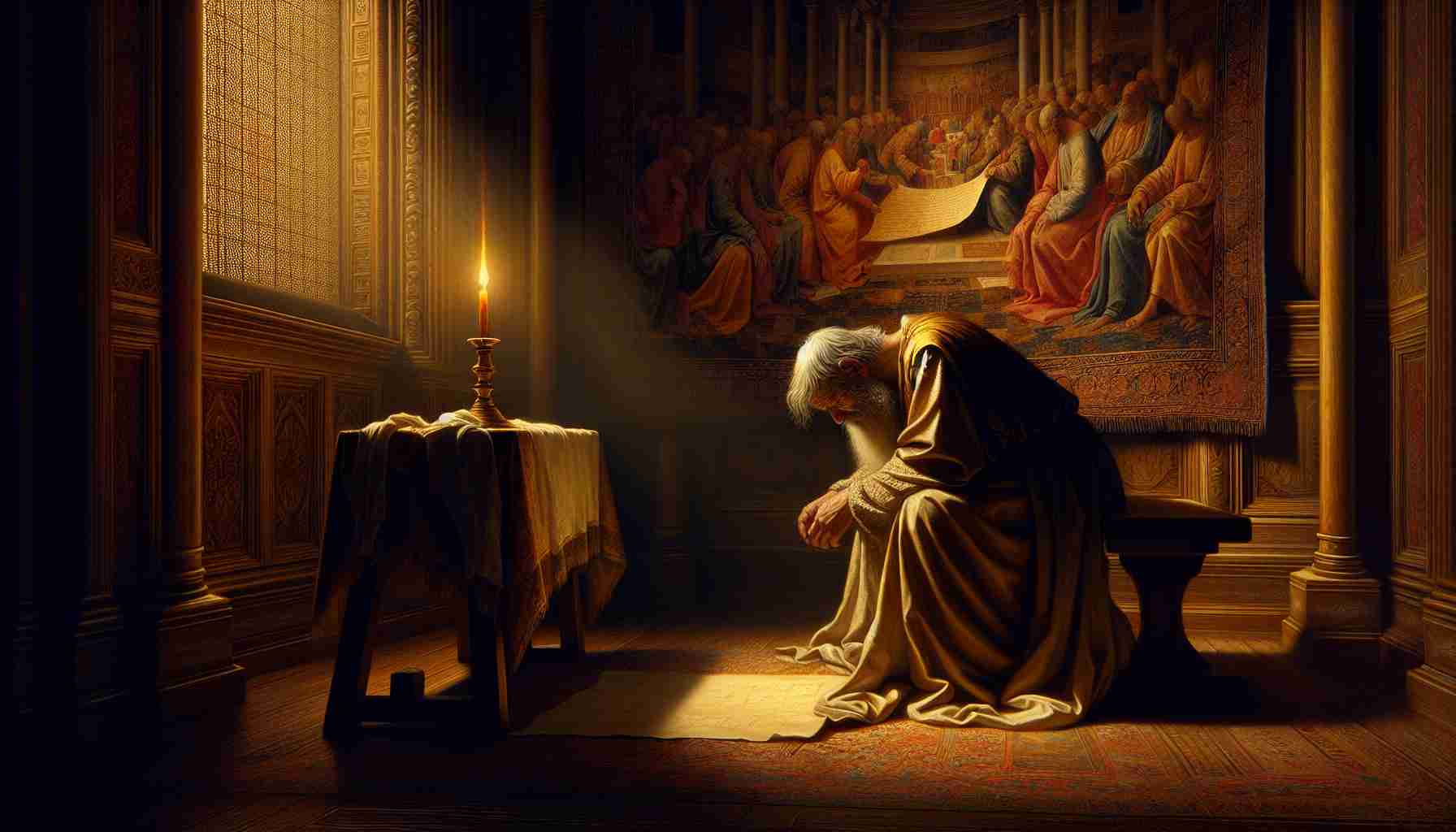

I was only a servant, just one among many who stood by the palace gates and carried messages when called. You won’t find my name in the scrolls. But I was there the day King David wept like a broken father, the day news of his son Avshalom’s death reached his ears.
It had been a long, terrible battle—one that split even families apart. Avshalom, King David’s own son, had raised a rebellion against his father. He wanted the throne for himself. Some said he believed he could rule better. Others said pride and anger had overtaken his heart. Whatever the reason, the land shook with war.
That day, I stood outside the gate, waiting for word from the battlefield. Two runners came—the first was fast, the second clear-spoken. I saw King David watching them from the rooftop. He'd been waiting, not just for news of victory, but for one thing: Was his son alive?
When the second messenger reached the gate, I edged closer, holding my breath as he spoke to the king.
"May the enemies of my lord the king," the man said, "and all who rise against you to do harm, be like that young man Avshalom.”
I watched David’s face. It changed so quickly I almost didn’t understand. He didn’t scream. He didn’t rage. He just turned, as if the ground was gone from under him. And then he cried out, not as a king—but as a father.
“O my son Avshalom! My son, my son Avshalom! If only I had died instead of you—Avshalom, my son… my son!”
Those words sank into me like cold water. I felt as though I shouldn’t be standing there, as though I was seeing something too private for common ears.
Avshalom had rebelled. He had broken David’s heart, stolen the trust of the people, even tried to kill his own father. And still, David mourned him—as if none of that had ever happened. Because even with all the wrong Avshalom had done, he was still David’s son.
Later, the soldiers who had fought for David returned to the city. But there was no celebration. No shofars—ram’s horns—blown, no dancing in the streets. The people walked back quietly, their heads hung low. Victory felt like failure. Some whispered that David’s grief shamed them. But those standing at the gates, like me—those who had seen the tears—I think we understood.
To most, David was a king, a warrior, a poet. But that day, he showed us something deeper. He showed us that love—chesed—can remain, even when someone hurts us. That being a father mattered more than being a ruler. And that forgiveness isn't always about words—it can look like tears spoken on a rooftop.
I never looked at the king the same way again. He was mighty, yes. But also deeply human. And that, I believe, is what made him great.
I was only a servant, just one among many who stood by the palace gates and carried messages when called. You won’t find my name in the scrolls. But I was there the day King David wept like a broken father, the day news of his son Avshalom’s death reached his ears.
It had been a long, terrible battle—one that split even families apart. Avshalom, King David’s own son, had raised a rebellion against his father. He wanted the throne for himself. Some said he believed he could rule better. Others said pride and anger had overtaken his heart. Whatever the reason, the land shook with war.
That day, I stood outside the gate, waiting for word from the battlefield. Two runners came—the first was fast, the second clear-spoken. I saw King David watching them from the rooftop. He'd been waiting, not just for news of victory, but for one thing: Was his son alive?
When the second messenger reached the gate, I edged closer, holding my breath as he spoke to the king.
"May the enemies of my lord the king," the man said, "and all who rise against you to do harm, be like that young man Avshalom.”
I watched David’s face. It changed so quickly I almost didn’t understand. He didn’t scream. He didn’t rage. He just turned, as if the ground was gone from under him. And then he cried out, not as a king—but as a father.
“O my son Avshalom! My son, my son Avshalom! If only I had died instead of you—Avshalom, my son… my son!”
Those words sank into me like cold water. I felt as though I shouldn’t be standing there, as though I was seeing something too private for common ears.
Avshalom had rebelled. He had broken David’s heart, stolen the trust of the people, even tried to kill his own father. And still, David mourned him—as if none of that had ever happened. Because even with all the wrong Avshalom had done, he was still David’s son.
Later, the soldiers who had fought for David returned to the city. But there was no celebration. No shofars—ram’s horns—blown, no dancing in the streets. The people walked back quietly, their heads hung low. Victory felt like failure. Some whispered that David’s grief shamed them. But those standing at the gates, like me—those who had seen the tears—I think we understood.
To most, David was a king, a warrior, a poet. But that day, he showed us something deeper. He showed us that love—chesed—can remain, even when someone hurts us. That being a father mattered more than being a ruler. And that forgiveness isn't always about words—it can look like tears spoken on a rooftop.
I never looked at the king the same way again. He was mighty, yes. But also deeply human. And that, I believe, is what made him great.